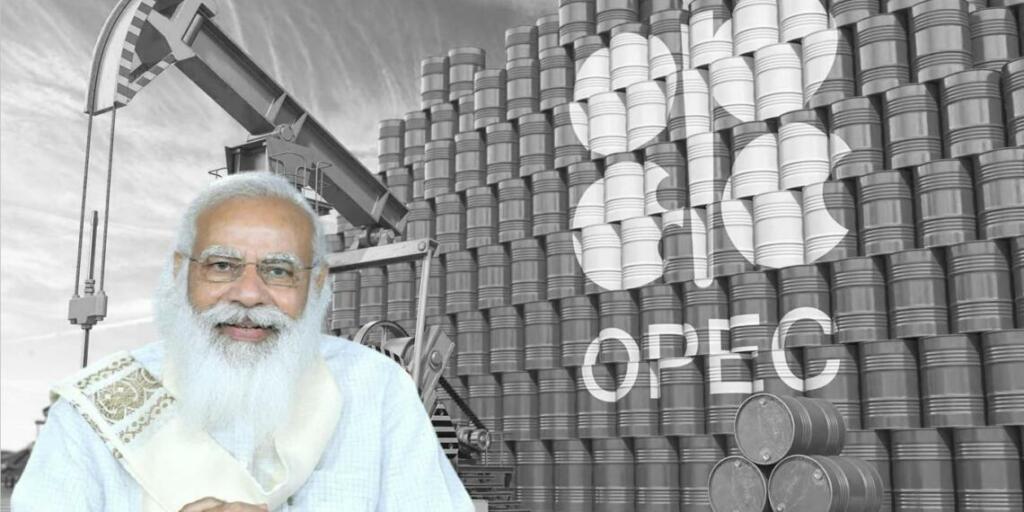- The Organisation of the Petroleum Exporting Countries (OPEC), is all set to get a big jolt from India.
- India, the world’s third-largest oil importer, and consumer is a major market for the OPEC countries.
- Last year when the oil prices collapsed, OPEC did a massive cut in oil production to ensure price rise.
The Organisation of the Petroleum Exporting Countries (OPEC), the international organisation of 14 oil-exporting countries led by Saudi Arabia which decides the amount of oil to be produced and therefore the price of oil in international markets, is all set to get a big jolt from India. The Modi government has decided to counter the cartel with another cartel of private and public refiners of the country.
India, the world’s third-largest oil importer, and consumer is a major market for the OPEC countries. However, so far, all the private and government-owned refiners used to negotiate the purchase deals from the Middle Eastern oil-producing countries separately, thus the negotiation power was less. Now the bulk import orders will be negotiated with active involvement from the government to ensure that Indian refiners get the best deal.
“The companies can form joint strategies and they can even go for joint negotiations wherever possible,” Tarun Kapoor, the oil Secretary to the Government of India said.
Last time Indian players jointly negotiated oil prices with Iran and got a very good deal, but after the prices slipped, the strategy was junked. Now as the oil prices skyrocket once again because the cartel is increasing production, the Indian government is looking for joint negotiation to reduce the import bill and get a better deal.
The 14 OPEC countries (Algeria, Angola, Ecuador, Equatorial Guinea, Gabon, Iran, Iraq, Kuwait, Libya, Nigeria, Qatar, Saudi Arabia, United Arab Emirates, and Venezuela,) account for an estimated 44 per cent of global oil production and 73 per cent of the world’s “proven” oil reserves, which gives the organisation major leverage on global oil prices. The OPEC mafia manipulates the market prices of oil according to its will by decreasing or increasing production. Thus by creating a counter-alliance of oil-importing nations, these countries could pressure OPEC to maintain a standard supply and negotiate the petroleum price.
Last year when the oil prices collapsed, OPEC did a massive cut in oil production to ensure price rise. And the prices did rise once the countries opened up after pandemic-induced lockdowns were lifted. The shipping issues further contributed to rising in price, and now the crude oil has breached 80 dollars per barrel, thus significantly increasing the import of bills of countries like India and China.
“OPEC+ should realise that this is not the right approach, they must step up production. If the demand is going up and you are not increasing production, you are trying to create a gap,” Kapoor said.
“Due to this, prices are going up and that’s not fair”.
India is consistently reducing its oil import from Middle Eastern countries by focusing on North American and South American countries. Within the last seven years of the Modi government, the import from Middle Eastern countries reached 70 per cent from around 85 per cent.
The West Asian OPEC members also charge ‘Asia Premium’ (higher price for shipments to Asian buyers), which is also a reason for discontent among Asian oil-importing countries. According to Prof Yoshiki Ogawa of Japan, the Asian Premium annually costs somewhere around $5-10 billion for Asian importers. India had earlier tried to unite the oil-importing countries two times during the UPA era, but nothing fruitful came out of those meetings. Now with the Modi government at the helm of affairs, we could expect a positive result from the ‘oil buyer’s club’, which will help the country save money on oil imports.
Read more: India’s EV sector transformation is giving sleepless nights to OPEC
Oil import is a major problem for India, accounting for the loss of huge foreign exchange reserves, and the Modi government is trying to solve this with this two-pronged strategy to increase clean energy generation and negotiate a better deal from OPEC countries.
